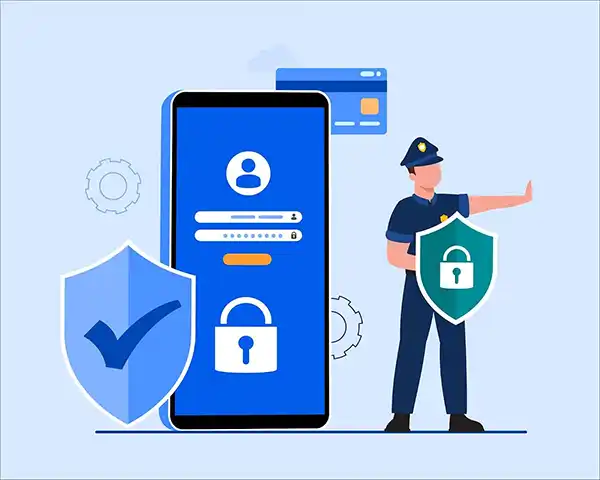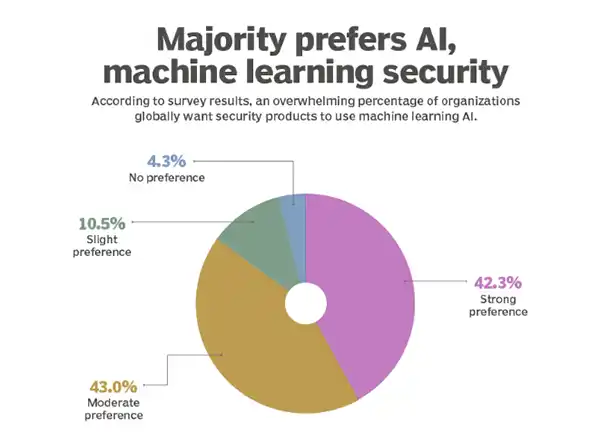In today’s connected world, where technology dominates our daily lives, keeping personal information secure and private has become increasingly important. With the exponential growth of online activities and the over-sharing of individual data, addressing the growing concerns about privacy in the digital age is precarious.
In this blog, we aim to raise awareness about the value of privacy and provide practical advice on protecting personal information in an increasingly high-tech society.
Physical, informational, and decisional privacy are some of its dimensions. The right to solitude and control over one’s own space is referred to as physical privacy. While the protection of exclusive data from unauthorized access or disclosure is referred to as an informational one. The goal of decisional anonymity is to maintain autonomy and make decisions without influence from others. Recognizing these dimensions allows us to appreciate its complexities and importance in the digital age.

The introduction of online technology has resulted in an explosion of personal information on the internet. Our distinct information is more vulnerable to breaches and misuse, ranging from financial data and social media accounts to health records and location data. As technology advances, it is pertinent to be aware of the dangers of sharing personal information in the digital realm.
Do You Know: Around 92% are afraid of their privacy being threatened while using the Internet.
A variety of hazards endangers the security of individual information. Breach of cybersecurity, data mining, profiling, online monitoring, social engineering assaults, and vulnerabilities in Internet of Things (IoT) devices can all jeopardize our privacy. Understanding these issues enables us to take proactive measures to properly protect our personal information.
Personal information protection necessitates a combination of techniques and best practices. Password security, two-factor authentication (2FA), encryption and data protection measures, frequent software upgrades, safe browsing habits, and being cautious with social media sharing are all important elements in improving personal information security.
Personal information is protected by privacy laws and regulations. Individuals and businesses must understand the legal frameworks and international standards that govern anonymity. Moreover, these policies and terms of service agreements explain how it is gathered, used, and safeguarded. Privacy protection is the obligation of both the government and organizations.
Balancing this obscurity with security and convenience is an ethical dilemma. Techniques such as data anonymization and de-identification can help to protect it while also providing valuable insights. Transparency and informed consent should be promoted to empower people to make informed decisions about their individual information. Data collectors and processors have an ethical obligation to treat personal information with honesty and respect for privacy.
Let’s explore the various aspects of safeguarding personal information in this technologically advanced era. Its three vital part is physical, informational, and decisional.
In a world where online footprints are constantly created, it’s essential to prioritize physical anonymity. There are tips and tricks to ensure your devices, networks, and online presence are secure from unwanted intrusion. From setting strong passwords to encrypting your data, we’ve got you covered for safeguarding your physical privacy in this digital realm.
In this age of data mining and targeted advertising, this has become a pressing concern. There are measures you can take to protect your personal information from falling into the wrong hands. From understanding online tracking to utilizing privacy-focused browsing tools, this blog will equip you with the necessary knowledge to navigate the data minefield and safeguard your informational obscurity effectively.
In the cybernetic age, it refers to our rights and control over our personal decisions. The importance of maintaining autonomy over our choices while interacting online is relevant. Learn how to assert your decisional privacy by understanding policies related to it, managing data-sharing permissions, and exercising your rights when it comes to the usage of your personal information.
Individuals must be educated on anonymity hazards and preventative measures through promoting digital literacy. We can foster a privacy-conscious culture by empowering individuals with knowledge. Encouraging responsible online conduct and giving individuals opportunities to take control of their personal information are necessary steps in protecting privacy.

Alt-tag: Pie chart
Let’s delve into the future challenges we might face when it comes to privacy and the emerging solutions to safeguard personal information.
With each passing day, the issue of privacy becomes more complex, and new challenges constantly emerge. The potential future challenges that individuals and organizations should be aware of to proactively protect personal information.
From advancements in artificial intelligence to the proliferation of smart devices, some developments can impact our privacy and identify potential vulnerabilities.
While the digital age brings new challenges, it also offers innovative solutions to safeguard personal information. Emerging technologies and practices help individuals and organizations strengthen their privacy measures.
We will discuss the role of encryption, biometrics, and blockchain technology in enhancing data protection. The adoption of privacy-conscious policies and regulations can contribute to a safer digital space for everyone.
Convenience often comes at its expense, especially in a world driven by technology. The constant trade-off between privacy and the convenience of digital services is a challenge many individuals face today. The importance of striking a balance between personal privacy and the benefits of digital advancements cannot be understated.
Some practical tips and techniques individuals can use to maintain their anonymity without compromising on convenience, such as using secure password managers and practicing smart social media habits.
Ultimately, one of the most effective ways to tackle the challenges of obscurity in the online age is through education and awareness. In this section, we will highlight the significance of educating users about the importance of safeguarding individual information and the potential risks associated with digital platforms. Organizations can play a gigantic role in promoting privacy-centric practices, and individuals can take proactive steps to protect their personal information.
As we move forward towards a more high-tech world, its importance cannot be overstated. By staying informed about the future challenges we may face and embracing the emerging solutions available, we can navigate the digital landscape confidently, safeguarding our confidential information and preserving our privacy.
Parents play a chief role in assisting their children in maintaining their online presence. Parents can efficiently monitor and protect their children’s internet behavior by using parental monitoring apps.
Here are some examples of how parents can utilize these technologies to protect their children’s privacy:
1. Configure Age-Related Content Filters: Parental controls enable parents to filter and prevent unwanted content based on their child’s age. This helps to protect their privacy by avoiding exposure to potentially harmful or improper material.
2. Monitor Social Media activity: Parental control programs frequently include tools for monitoring and managing social media activity. Parents can limit their children’s screen time, monitor their interactions, and ensure that they do not share sensitive personal information online.
3. Manage App and Website Access: Parental control programs enable parents to regulate which apps and websites their children have access to. Parents can prevent their children from visiting potentially dangerous websites or utilizing apps that may jeopardize their privacy by providing a safe and secure digital environment. You can use iOS parental control if your child is using an iPhone. The steps for configuring parental controls on an iPhone can be found here.
4. Teach Responsible Online Behavior: Education is essential for safeguarding online privacy. Teach your children the value of personal information protection, such as not disclosing sensitive information such as full name, address, phone number, or passwords with strangers online. Teach them to be cautious while interacting with others and to report any inappropriate or suspicious behavior.
Remember, parental control apps are valuable tools, but they should be used in conjunction with open communication and guidance. Establishing trust and educating your children about responsible online behavior are equally important in fostering their understanding of anonymity and their ability to protect themselves online.
We can safeguard our personal information effectively by understanding the various dimensions of privacy, recognizing threats, implementing protective measures, considering legal and ethical aspects, promoting education and empowerment, and staying abreast of emerging solutions.
Let us prioritize privacy in the digital age and work together to ensure a secure and privacy-respecting online environment.